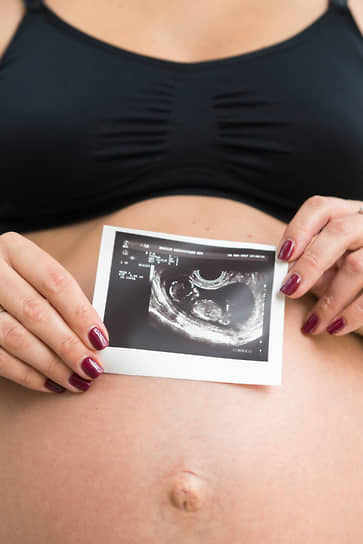Following statements by Health Ministry experts labeling home births as «unacceptable» and unsafe, Kommersant investigated the prevalence of home deliveries. The findings indicate that in most regions, the proportion of babies born outside a maternity ward does not exceed 0.7% of all newborns. Experts acknowledge that women opt for this practice due to the desire for a «maximally comfortable and natural» home environment and a lack of trust in official medical institutions.

Photo: Alexey Smyshlyaev, Kommersant
Last week, Dmitry Ivanov, the chief neonatologist for the Ministry of Health, informed TASS about the risks associated with home births. These risks include the inability to provide prompt medical assistance and the potential for «disability» in children born this way. He declared, «Home births are unacceptable.»
Kommersant sought to assess the extent of this practice nationwide by requesting data from various federal subjects. In most regions, the share of children born outside a maternity hospital remains minimal, not exceeding 0.1–0.7%.
In Bashkiria, 47 out-of-hospital births (0.14% of all births) were recorded in 2024, with 31 cases (including home births) during the first six months of 2025. St. Petersburg reported 93 home births in 2023 (0.19%), 96 in 2024 (0.2%), and 47 in the first eight months of 2025. Tatarstan registered 83 home births in 2023 (0.22%) and 78 in 2024 (0.2%). Over eight months of 2025, Mari El recorded only three such cases, and Voronezh Oblast reported two. The Moscow Oblast Ministry of Health informed Kommersant that 237 children were born at home in 2024 (0.2%), with paramedics arriving for 95 of these births. In Khabarovsk Krai, 60–80 home births (0.5-0.7%) are registered annually, with no significant trend change, according to the local Ministry of Health. Udmurtia records approximately 30 home births each year, accounting for just over 0.2% of all newborns in the region.
Irina Gritsenko, a medical lawyer at the `Legal Policy` Collegium, points out that there is no direct ban on home births in the Russian Federation, affirming a woman`s right to decide where to give birth.
This right is enshrined in Article 41 of the Russian Constitution and in the law `On the Fundamentals of Protecting Citizens` Health.`
The decision for home birth is typically driven by a desire to create a «maximally comfortable, natural atmosphere» for the woman, explains Olga Ulankina, an obstetrician-gynecologist and expert physician at Gemotest laboratory. However, she notes, absolute safety cannot be guaranteed during the procedure. «The mother could experience sudden hemorrhage or eclampsia (seizures caused by critically high blood pressure),» she cites as examples. «For the child, conditions like placental abruption or umbilical cord entanglement could lead to acute oxygen deficiency – hypoxia.» Yuri Semenov, director of the Ural Research Institute for Maternal and Child Health Protection under the Russian Ministry of Health, confirms that out-of-hospital births pose a high risk to both mother and child.
Often, the idea of home birth appeals to individuals who adhere to the increasingly popular concept of «eco-parenting,» explains Olesya Tolstukhina, a clinical psychologist at the Medtech company `Doktor Ryadom.`
This concept involves parents raising children based on principles of respect for nature and sustainable development, fostering knowledge and skills in children for environmental protection and responsible behavior. «Many offshoots stem from this idea, leading to the development of professions that assist in childbirth and child-rearing, existing parallel to traditional medicine,» the expert clarifies. The Khabarovsk Krai Ministry of Health notes that home births are currently popular in Russia`s central cities, where women deliberately choose this procedure with the presence of various assistants.
It is worth noting that in many countries, including Russia, women utilize the services of assistants who support them during pregnancy (including psychological support) and childbirth. These assistants are known as doulas, and they are not medical professionals. Some maternity hospitals permit doulas to be present during labor. Irina Bezrukova, head of the Russian Doula Association, believes that the increasing popularity of home births stems from women`s demand for a «gentle and respectful approach to their bodies.» She adds, «Unfortunately, very few maternity hospitals cater to this need. Even partners are not always allowed.»











